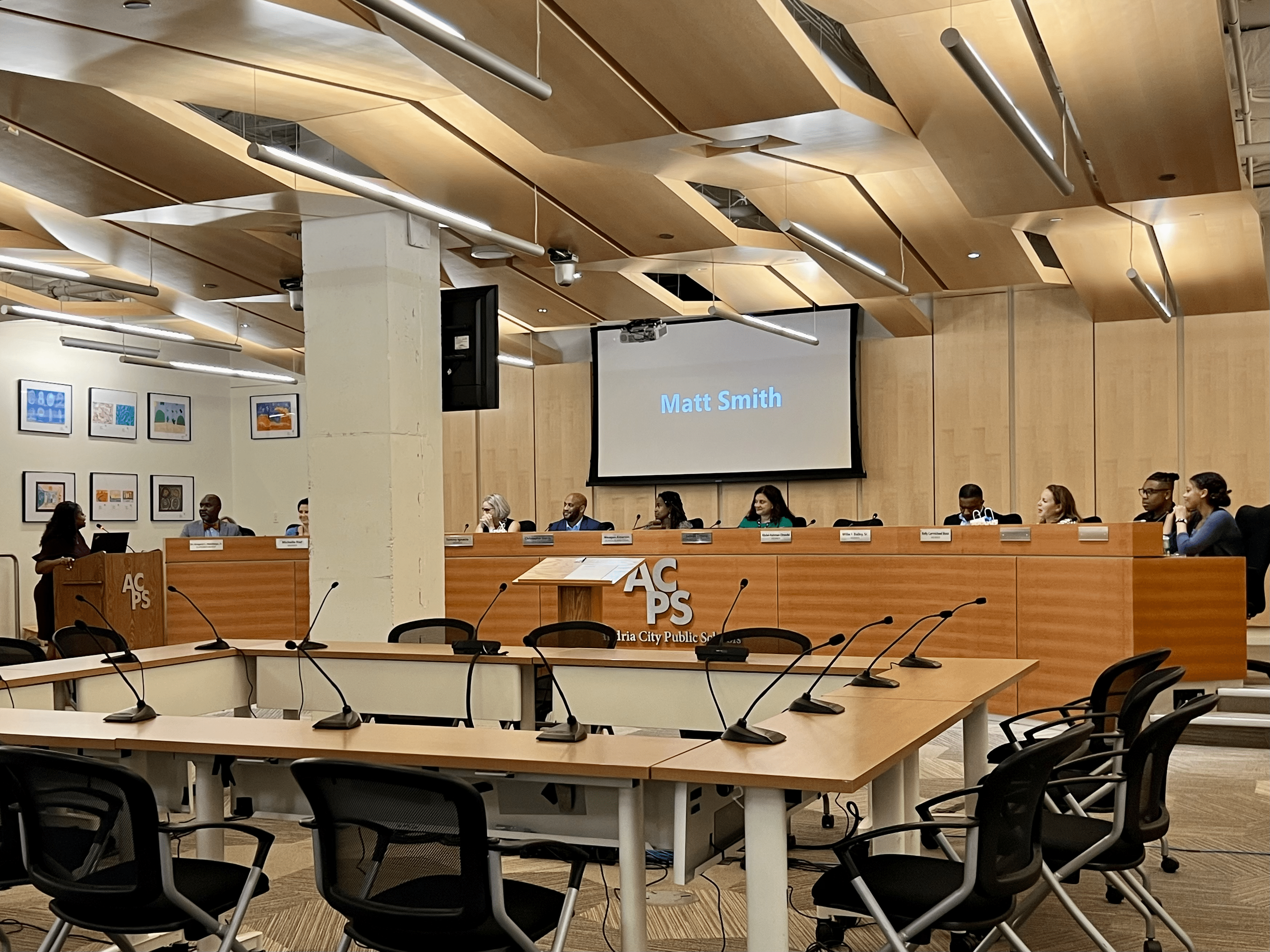James Libresco
Staff Writer
On Thursday, August 25, the ACPS School Board held a special-session meeting about a proposal to change their grading policy. Citing a lack of teacher input and a less than “ideal time,” the lengthy discussion concluded by tabling the overall proposal, including a section that would have eradicated the function of homework in the classroom. The Board voted to adopt aspects of the proposal, including regulating a 60/40% summative and formative grading ratio and abolishing class rank.
The School Board first discussed a section of the proposal termed Regulation IKC. The regulation requires that summative assessments comprise 60% of students’ final grades and formative assessments comprise 40%. Regulation IKC was brought to the floor by Member Dr. Ashley Simpson Baird and passed in a 7-1 vote with one absence and the sole ‘no’ vote coming from Member Jacinta Greene. It also fully abolished class rank, which ACHS previously provided by percentile.
Additionally, the Board unanimously approved a motion (with one absence) from Member Dr. Michelle Rief that broadened grading-policy language from “final exams” to “final assessments.” ACPS Policy Services Consultant Matt Smith described a goal for grading to become more “holistic” which was echoed by Chairwoman Meagan Alderton. “We need to have multiple, differential ways for students to demonstrate their learning… If we think ‘summative assessments’ are just tests, we have a huge problem in ACPS,” she said.
These changes were widely agreed upon among students, staff, and administrators. “Abolishing class rank is something that has been in conversation for many years now, and I’m fine with it going away,” said social studies teacher Molly Freitag, who hosted a discussion in her classroom between high schoolers and Member Kelly Carmichael Booz the morning of the meeting. “For many years, I have seen students push themselves way more than they should in order to compete against each other. They overload their classes and stress out about maintaining perfect grades. This can lead to negative effects on a student’s well-being and mental health, which I believe are as important as their academic achievement,” said Freitag.
As for the 60/40 grading policy, Freitag is skeptical but optimistic. “I hope that we can have some flexibility in this, especially in the AP classes. As stated by Superintendent Hutchings, these numbers came from the middle schools, and we should be able to differentiate at the high school. But for now, we’ll make it work,” she said.
The other major topic of this meeting was a proposal from Dr. Hutchings dubbed Regulation IKB. It stated that “grades should reflect work completed in class” and that homework “should not be used in grade calculations.” It also regulated that NHIs would be inputted to the grade book instead of zeroes. The policy was ultimately tabled by the School Board.
Although some went straight to saying ACPS made the move to relax class standards, Smith and Dr. Hutchings branded the proposal as a step towards equity. At the meeting, Smith said, “That’s the core of equity: ensuring that those students who may not be in that situation that is supportive of having those academics completed outside of school hours are not put at a disadvantage because of it.”
Hutchings said, “I think that [regulation IKB] is a step in the right direction. This is going to allow us to have that deeper discussion around what grading means for all students.”
Regardless of the equity focus, the proposal attracted lots of controversy, especially from teachers. “I’m extremely relieved that the Board tabled this part of regulation IKB,” said Freitag. “I wholeheartedly agree with Chairman Alderton that equity has to be at the center of this work and that we need to do something instead of just continuously talking about it. However, I believe that there were too many unanswered questions and missing pieces for this regulation to be passed at this time,” she said.
Many students agree with Freitag. Junior Ismail Turunc said, “I do see where it’s coming from- that there’s a lot of inequality in this school and it’s harder for some students to get homework done, but I do not think this is the best way to solve that problem. There are a lot of other things that can be done which are much better and more efficient, for example, bringing back Lunch & Learn.” He also added that “homework is an important part of our learning system, and students would not be able to fully master content without it.”
Sophomore Seamus White expressed a different view. “I think ending homework would definitely benefit kids,” he said. “There’s a lot of people out there who do not have good home lives and to force them to deal with a bad home life and also to do homework that is due in one or two days is just terrible.” White said that homework should still exist, but the way it is completed needs to change. “We have 70-minute classes. What we should do is have a time at the end of class to do homework, but as classwork,” he said.
Ultimately, the Board decided to table the proposal due to the school year having already started, the response they received from educators, and the lack of public comment at the meeting. Some members ventured into schools to see how teachers felt about the proposal. Dr. Baird said, “When I first read this policy, I was really excited about it… but then I started talking to my educators, and their responses made it so clear to me that we are just not there yet.”
Other members agreed and also pointed out the timing of the proposal. Member Tammy Ignacio said, “I’m really cautious about asking teachers to change something now… It’s one more pressure we’re adding to our staff.” Member Booz reiterated this statement. She said, “We don’t need to add an extra burden on our teachers and our students… [the] starting point doesn’t have to be today on this one.” Dr. Rief agreed that it was not a good time to change policies already in place. She said the fact that the proposal was not unveiled and voted on before the school year started is “unacceptable.”
Still, the Board agreed they would look into the proposal again after receiving more public comment. Since Dr. Hutchings’ proposal was released just hours before the sign-up for public comment closed, no members of the public were able to speak at the meeting. Member Booz said, “We as a Board should move away from doing things without true community engagement…we need to be bringing our community, our educators, our teachers with us.” She agreed with other members that after public comment is received, it will be important to bring the proposal up again. Chairwoman Alderton echoed this, saying, “I am glad we finally had a discussion. We can’t come in the spring and not have flushed this out.”
The meeting ended with Dr. Hutchings’ last statement to the School Board as superintendent, as he retired from the position on August 31st. He thanked teachers and staff for all they have done. “I just want to thank our staff for showing up every single day in spite of it all, even when we had our moments when we were like, ‘what are we gonna do tomorrow?’… [from] our support staff, to our faculty, to our teachers, to our administrators, I just want to thank you all for saying yes to ACPS. Because this place, it is a family. It is a very special place.”
Dr. Hutchings ended by speaking about his appreciation for the city. “We have a very special community in Alexandria,” he said. “We have a community that is not only diverse, but we are progressive, we are forward-thinking, we are open-minded, we are willing to try things differently, and we come together when we need to come together. That is something that I am very proud of.”
Photo by Guy Cardwell






